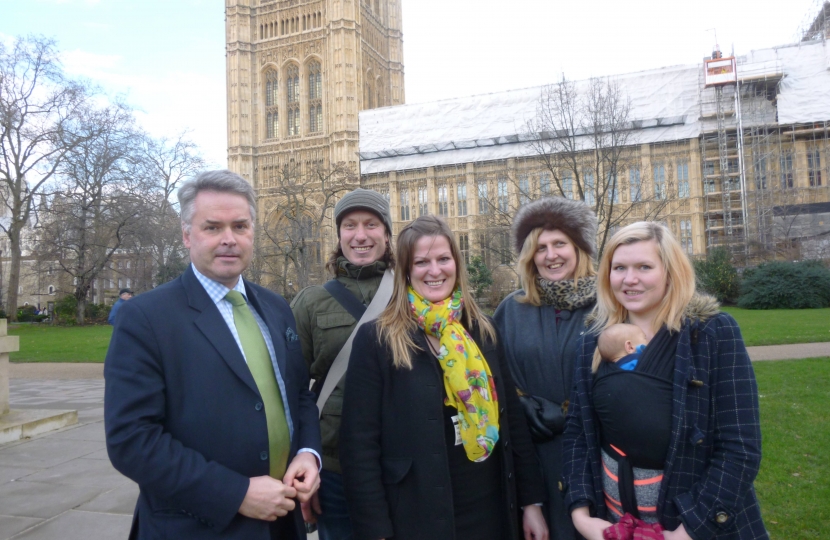
Tim Loughton, Member of Parliament for East Worthing and Shoreham and former Minister for Children, raised the issue of still birth registration in a debate in the House of Commons today.
Currently, if a mother loses a baby before 24 weeks the state does not recognise the existence of the baby. The knock on effect on the parents mourning this highly personal and traumatic loss is compounded by the denial of formal bereavement leave and official recognition of the loss suffered by a couple. Parents are expected to return to work, no matter what their physical and psychological condition may be.
This issue came to light when Tim’s constituent, Hayley, approached him with her personal experiences of losing a baby before the 24 week period and the impact this has had on her as she was forced to suffer in silence. Hayley had unfortunately earlier suffered both a miscarriage – which usually happens early on in a pregnancy - and subsequently given birth to a stillborn child in hospital after 20 weeks. She was clear they were different situations, but the law treated them in exactly the same manner. The stillbirth was effectively ‘only another miscarriage’ she was told. Neither losses could be registered; in effect they had never existed despite having carried a child for almost two thirds of a regular pregnancy period.
Hayley has been campaigning on the issue and was today able to hear the Ten Minute Rule Motion, along with her family, in the House of Commons.
Tim called for a revision to the Births and Deaths Registration Act 1953 section 41 as amended by the Stillbirth (definition) Act 1992 and argued the case for formal registration of still born babies born under the current 24 week threshold. He did this by promoting a Private Members’ Bill under the Ten Minute Rule Bill facility in the House of Commons with cross party support and will be seeking a meeting with the Health Minister responsible, Dr Dan Poulter.
Tim commented:
‘Losing a child is a traumatic experience at the best of times but giving birth to a still born child whose existence is effectively not acknowledged is particularly harsh and I think the law needs to be changed.
Whilst there is an informal system where a hospital can issue a certificate to acknowledge a stillbirth has taken place, it is not the same as the state acknowledging the existence of a baby who may have missed out on registration by a matter of days due to the current threshold. This is nothing to do with changing the law on abortion. It is not a call for official bereavement recognition and support services for the small number of parents involved although it would help if employers had something official to be able to respond sympathetically to. But the case of my constituent who has suffered the double tragedy of first a miscarriage and then a still birth graphically illustrates that the two experiences are different and must be recognised and then treated as such.
We already have a problem in this country with the relatively high levels of perinatal mortality but it seems that the situation is even worse if we are failing to include early stillbirths in the statistics too and clearly more needs to be done to help prospective mothers during the often turbulent earlier stages of pregnancy.’
